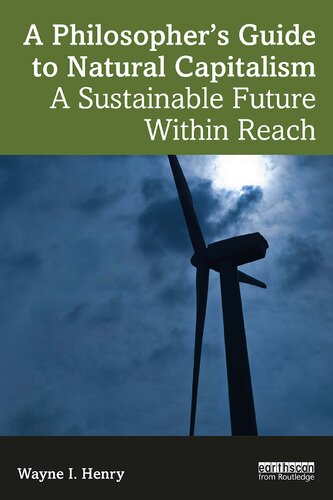

Most ebook files are in PDF format, so you can easily read them using various software such as Foxit Reader or directly on the Google Chrome browser.
Some ebook files are released by publishers in other formats such as .awz, .mobi, .epub, .fb2, etc. You may need to install specific software to read these formats on mobile/PC, such as Calibre.
Please read the tutorial at this link: https://ebookbell.com/faq
We offer FREE conversion to the popular formats you request; however, this may take some time. Therefore, right after payment, please email us, and we will try to provide the service as quickly as possible.
For some exceptional file formats or broken links (if any), please refrain from opening any disputes. Instead, email us first, and we will try to assist within a maximum of 6 hours.
EbookBell Team

4.1
70 reviewsThis book posits that a sustainable future is possible without abandoning Capitalism. In its current form as Consumer Capitalism, the organization of the global economy is clearly unsustainable. But Capitalism is a malleable concept that has assumed a variety of forms since the 17th century, and it can be altered as needed.
In Part I of this book, the author sets out an economic model for a sustainable form of Capitalism, referred to in the literature as Natural Capitalism. In Part II, he abandons exposition in favour of rigorous philosophical analysis and critiques the older but still dominant narrative that underlies Classical Liberalism. The narrative will be reconstructed with great care and analysed to understand why it has been so powerful and enduring, and, of course, why it is no longer appropriate for our current circumstances. In Part III, he investigates from a normative perspective Classical Liberalism and globalized Capitalism and the economic system it licenses. Finally, in the conclusion, the author draws the threads of the discussion together in a way that emphasizes the differences between the two narratives, Classical Liberalism on the one hand and the contemporary version of Progressive Liberalism that nurtures and supports Natural Capitalism on the other.
This book will be of interest to a broad range of scholars and curious laypersons interested in a clear and interdisciplinary presentation of the issues arising out of climate change, including corporate governance, social and environmental policy, declining social capital and the capacity of democratic institutions to deal effectively with sustainability. It will be particularly relevant for students and instructors of philosophy, history, economics, political science, social policy and environmental sociology.